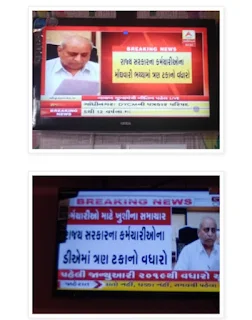MONGHVARI BHATHTHA MA 9% THI VADHARI 12% KARAYA NI JAHERAT.
Chimombo pointed out education's role as a policy instrument, capable of instilling social change and economic advancement in developing countries by giving communities the opportunity to take control of their destinies.2030 Agenda for Sustainable Development, adopted by the United Nations (UN) General Assembly in September 2015, calls for a new vision to address the environmental, social and economic concerns facing the world today. The Agenda includes 17 Sustainable Development Goals (SDGs), including SDG 4 on education
MONGHVARI BHATHTHA MA 9% THI VADHARI 12% KARAYA NI JAHERAT.
Since 1909, the ratio of children in the developing world attending school has increased. Before then, a small minority of boys attended school. By the start of the 21st century, the majority of all children in most regions of the world attended school.
 |
MONGHVARI BHATHTHA MA 9% THI VADHARI 12% KARAYA NI JAHERAT. |
Furthermore, demand in the developing world for improved educational access is not as high as foreigners have expected. Indigenous governments are reluctant to take on the ongoing costs involved. There is also economic pressure from some parents, who prefer their children to earn money in the short term rather than work towards the long-term benefits of education.
- national leadership and ownership should be the touchstone of any intervention;
- strategies must be context relevant and context specific;
- plans should employ an integrated set of complementary interventions, though implementation may need to proceed in steps;
- partners should commit to a long-term investment in capacity development while working towards some short-term achievements;
- outside intervention should be conditional on an impact assessment of national capacities at various levels
- a certain percentage of students should be removed for improvisation of academics (usually practiced in schools, after 10th grade).





